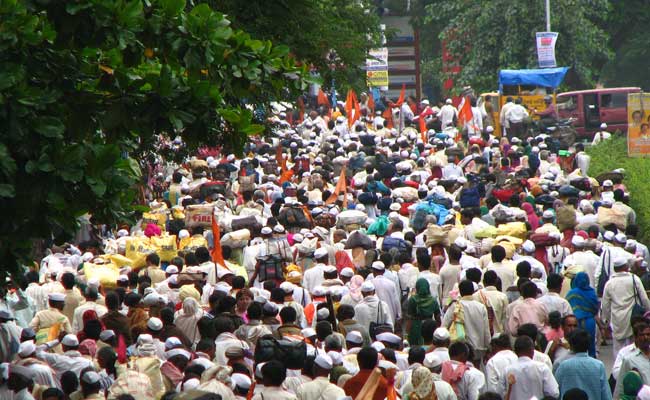The centre had said 25 of 36 states had reached their target fertility rates (Representational)
India is "unequivocally against coercion in family planning" and data shows "couples, on average, do not want more than two children", the centre told the Supreme Court in a December 2020 affidavit signed by an Under Secretary in the Union Health Ministry's Family Planning division.
The affidavit - filed in response to a PIL by BJP leader Ashwini Kumar Upadhyaya seeking re-introduction of the mandatory two-child norm or the framing of an equal new law - emerges as BJP-ruled Uttar Pradesh and Assam and several party MPs push for controversial population control laws that include blocking access to government benefits for couples with more than two children.
"Family Welfare Programme in India is voluntary in nature, which enables couples to decide size of their family and adopt family planning methods... without any compulsion," the affidavit stated.
It also points out India is a signatory to the International Conference on Population and Development in 1994, under which it is "is unequivocally against coercion in family planning".
"In fact, international experience shows that any coercion to have a certain number of children is counter-productive and leads to demographic distortions," the affidavit stated.
The document also laid out a tranche of data to highlight a "constant decline in Total Fertility Rate (TFR)" and adds that 25 of 36 state/UTs had already achieved the target TFR of 2.1.
"Furthermore, as per census, 2001-2011 is the first decade in the last 100 years which has not only added lesser population as compared to the previous... but also registered sharpest decline in decadal growth rate from 21.54 per cent in 1991-2001 to 17.64 per cent in 2001-2011," it said.

A centre affidavit from December said "coercion" is not a solution to the population crisis (File)
On Sunday - World Population Day - UP Chief Minister Yogi Adityanath triggered a row with the release of a new population policy for the state.
The bill - a draft version of which has been shared with the public for feedback - proposes that people with more than two children will be debarred from contesting local polls, applying for government jobs or receiving any subsidy. It also bars government employees from promotions.
This was days after Assam Chief Minister Himanta Biswa Sarma made similar announcements; Mr Sarma, in fact, indicated the policy was meant to check the growth of the Muslim population.
"... when we lift the veil off the statistics, it is found the Muslim population is growing at a rate of 29 per cent (decadal), whereas Hindus are growing at 10 per cent," he was quoted by PTI.
This week sources said a number of BJP MPs will look to push for a national population control law through private members' Bills in the monsoon session of parliament that begins next week.
The proposed laws have triggered outrage from sections of civil society and the opposition.
Congress leader Salman Khurshid took a sly dig at the UP government: "Politicians should declare how many children they have. I will also declare how many I have and then it should be discussed."
Samajwadi Party leaders also hit out, with MP Shaqfiqur Rahman Barq calling it "election propaganda" ahead of next year's Assembly polls, MLA Iqbal Mehmood labelling it a "conspiracy" against Muslims and MLC Ashutosh Sinha calling it "murder of democracy".
The proposed laws have also been shot down by the BJP's ally in Bihar, where Chief Minister Nitish Kumar said: "I clearly believe that it is not possible to ensure population control with a law."
"When women are aware and educated, that is how population will reduce," he added.
Track Latest News Live on NDTV.com and get news updates from India and around the world

